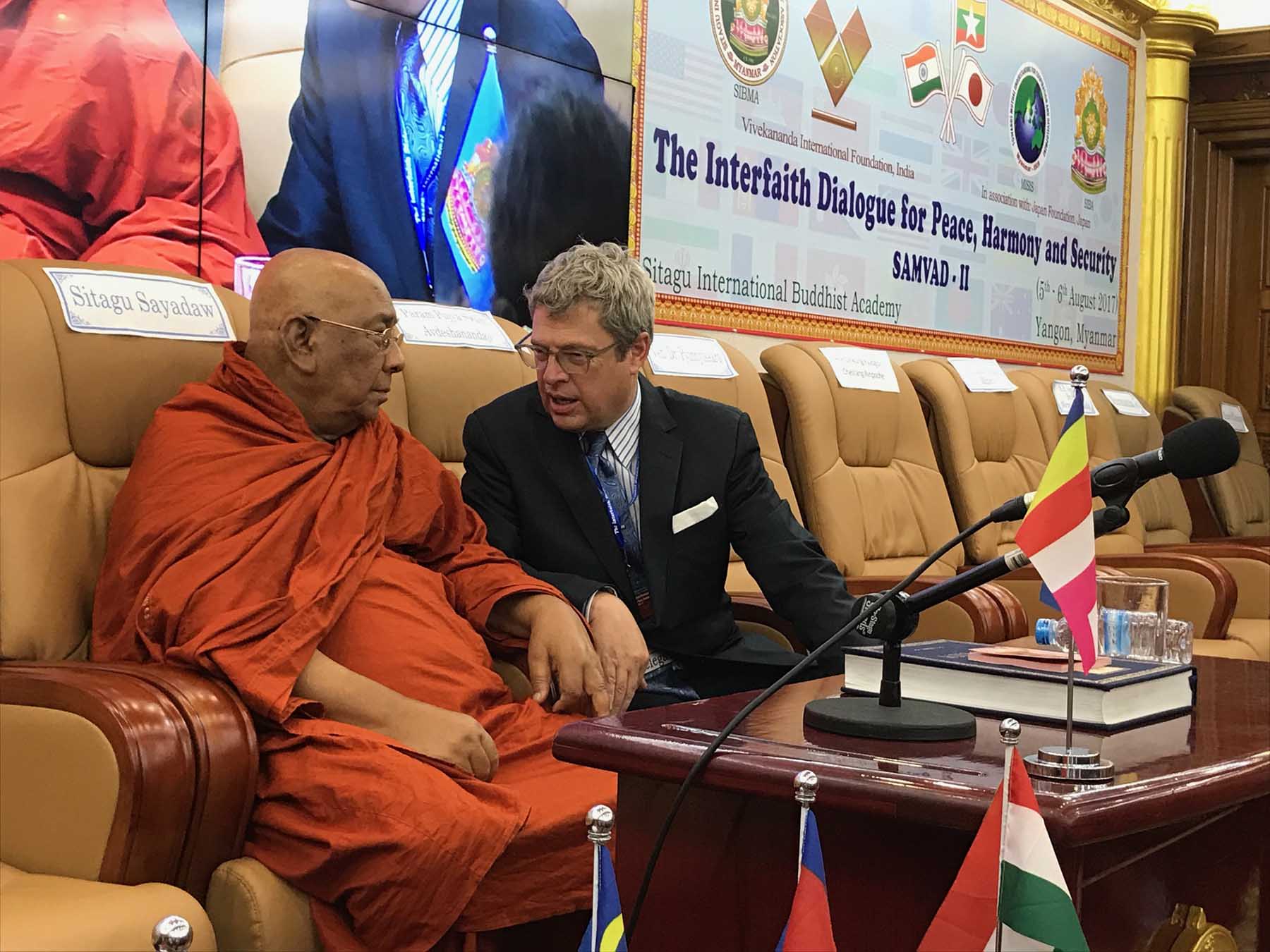Interfaith Dialogue for Peace, Harmony and Security – Yangon, Myanmar August 2017

On August 5-6, Professor Scharffs was a delegate and speaker at a major international conference, The Interfaith Dialogue for Peace, Harmony and Security (SAMVAD II), held at the Sitagu International Buddhist Academy, in Yangon, Myanmar. The conference involved high-profile religious leaders, government officials and academics from nineteen countries, with a focus on Southeast Asia. His lecture was televised in Myanmar.
Professor Scharffs was asked to speak on the topic of conflict avoidance, peace and harmony. Scharffs noted the high correlation between countries with high or very high legal restrictions and social hostilities involving religion and the presence of a majority religious group in those countries representing seventy percent or more of the population. He also observed that countries with a Catholic majority are a notable exception to this pattern, and suggested that it is the Catholic doctrine of religious freedom, enshrined in the Vatican II declaration, Dignitatis Humanae, that may account for this difference. In Vatican II, the Catholic Church declared that Catholic doctrine, rooted in the idea of human dignity, requires a recognition of the right of freedom of religion of all human beings. Scharffs also talked about the role of relationships and trust in responding to issues of religious extremism. He recounted the story of Ali Imron, one of the Bali Bombers, who was later deradicalized and then devoted his life to the deradicalization of other young Muslim men. This road to deradicalization was not based so much on a contest of ideas between “radical” and “moderate” Islam, rather it was based upon trust – which teachers he trusted to help him understand the meaning of his religious faith.